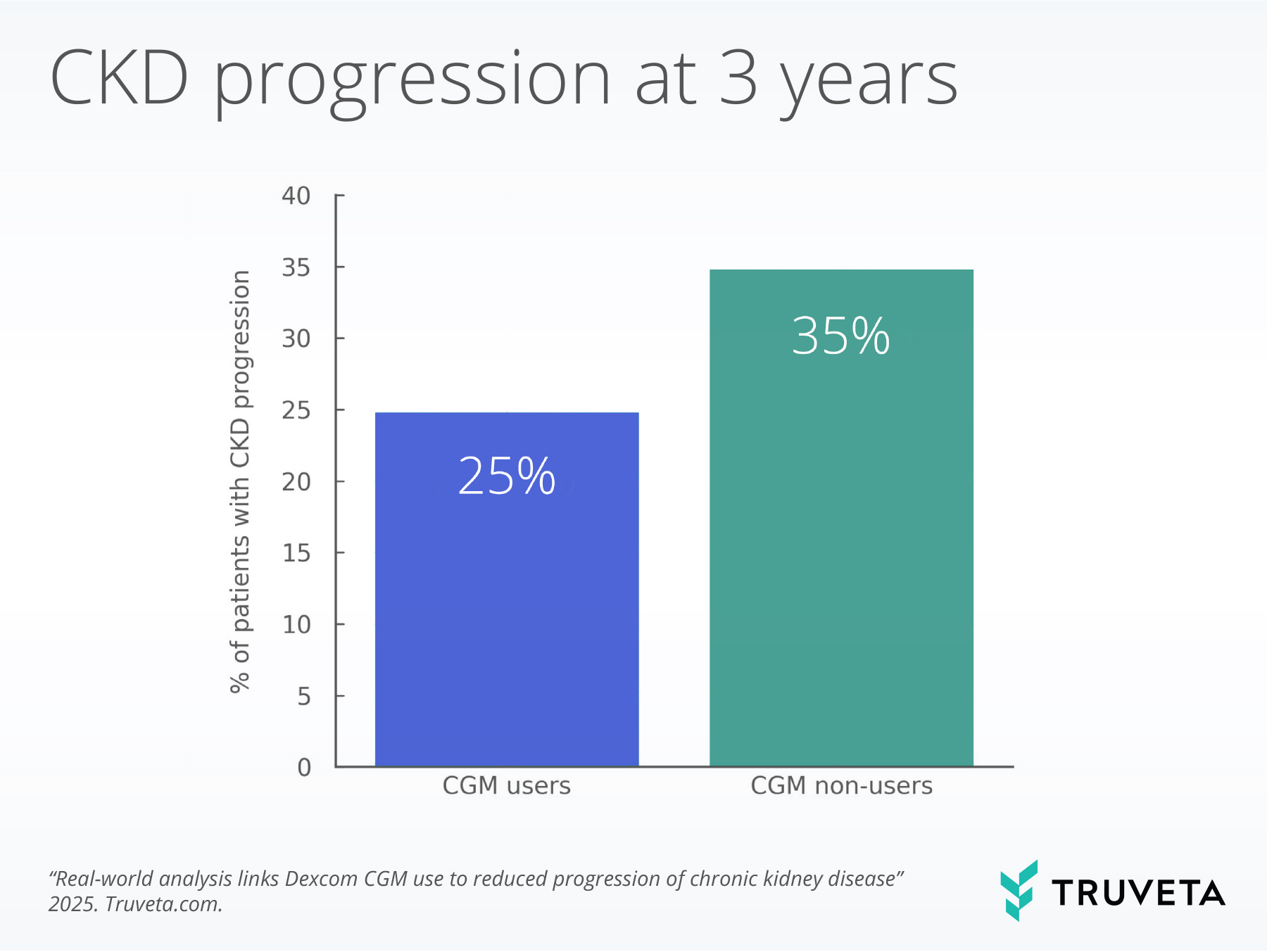Continuous glucose monitoring (CGM) is increasingly recognized not only for its role in diabetes management but also for its potential impact on broader health outcomes. A recent consensus statement highlighted the need for additional evidence on CGM use in people with chronic kidney disease (CKD).
In a new abstract published in the Diabetes supplement to the 2025 American Diabetes Association Scientific Sessions, researchers from Dexcom used Truveta Data to study kidney outcomes in adults with insulin-treated diabetes and CKD. They found that initiation of Dexcom G-series CGM was associated with a 14% reduction in CKD progression over three years, compared to non-users.
Study snapshot
Dexcom researchers evaluated adults with type 1 or type 2 diabetes on insulin who also had chronic kidney disease (eGFR 15–89). The study compared those who initiated a Dexcom G-series CGM between 2018–2023 with similar patients who did not use CGM.
- Population size: 65,839 adults (633 Dexcom CGM users; 65,206 non-users).
- Follow-up: Kidney function was tracked over three years using changes in eGFR and CKD stage.
- Key finding: After adjustment for comorbidities and medications, CGM initiation was linked to slower kidney function decline (improvement of 1.21 mL/min/1.73m² in eGFR) and a 14% reduction in CKD progression compared to non-users.

Why it matters
CKD progression is a major driver of morbidity in people with diabetes. By leveraging Truveta’s complete, timely, and representative electronic health record (EHR) data, the researchers were able to follow real-world outcomes over time, providing timely evidence that CGM may help protect kidney health. These findings support recent calls for broader CGM use in this high-risk population.
Answers can’t wait. Let’s talk today.

